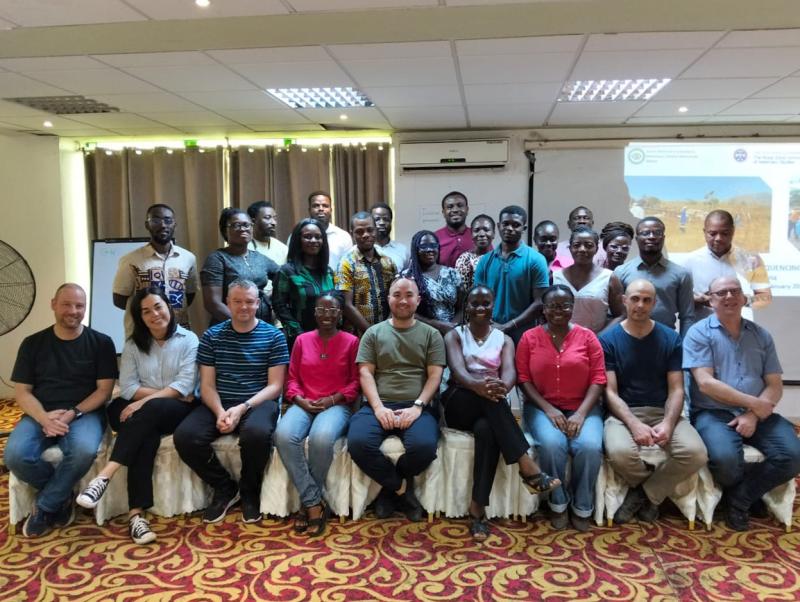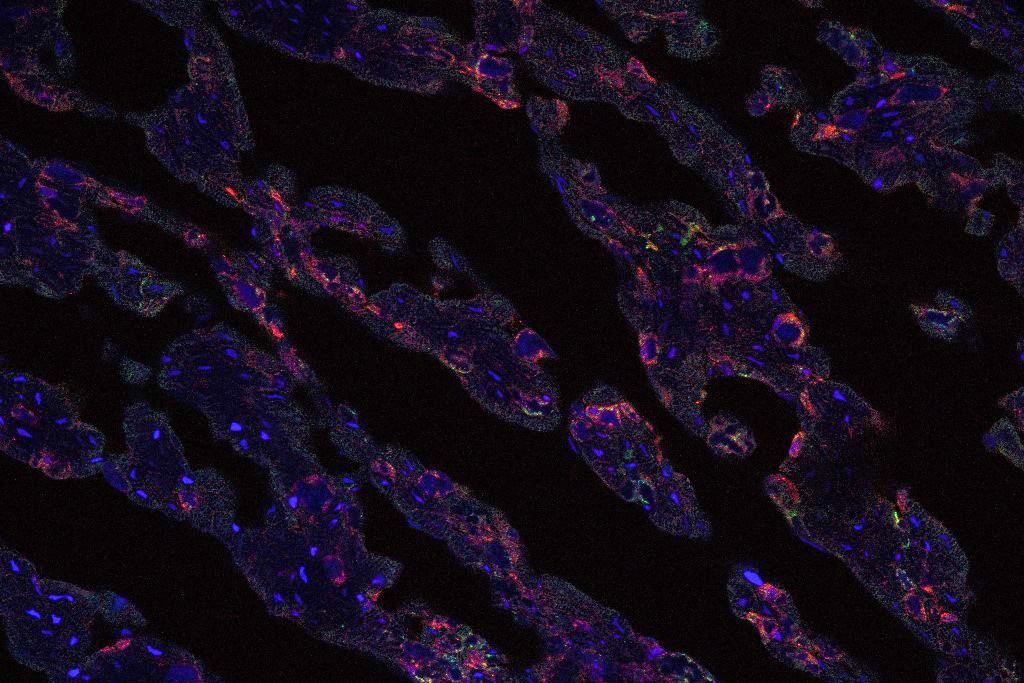Researchers from The Pirbright Institute are helping to strengthen ties in animal research and data science between Ghana and the UK.
The partnership, led by the Roslin Institute and the University of Ghana, aims to develop Ghanaian local expertise in animal health and long-term research connections between both countries.
The project kicked off with two workshops led by the Roslin Institute’s Division of Epidemiology, delivered in collaboration with the Accra Veterinary Laboratory and the University of Ghana, alongside experts from the Pirbright Institute and the University of Glasgow.
Designed to equip local researchers with new analytical tools and techniques, including training in data science and genome sequencing, the collaboration takes a One Health approach, recognising the interconnectedness of animal, human and environmental health. It aims to advance analysis of animal movement and disease outbreaks that cause a significant economic burden, such as foot-and-mouth disease and African swine fever.
Dr Andrew Shaw, Senior Postdoctoral Scientist at The Pirbright Institute, said: “Over the course of a week, we delivered two workshops attended by academics, government officials and veterinarians from across the country. In one of the workshops, participants received hands-on training in genome sequencing and bioinformatic analyses to enhance diagnostic capacity in Ghana, which builds on work in Uganda by the Roslin partnership.
The second course was designed to develop data science and epidemiological skills, as well as enhance awareness of how data-driven approaches can be used to address outbreaks of infectious disease.”
Training focused on data analysis and disease modelling using Ghana’s national animal movement database to illustrate its practical use in informing disease control strategies.
Scientists from Roslin and Pirbright meet with individuals from the University of Ghana.
By fostering local expertise, the workshops aimed to reduce reliance on external resources and strengthen Ghana’s ability to respond effectively to animal disease outbreaks.
The initiative has laid the foundation for future collaborations and garnered support from Ghana’s Chief Veterinary Officer who expressed enthusiasm for the collaboration and its potential impact on evidence-based policymaking in the country’s animal health sector.
Richard Kwamena Abbiw, PhD Candidate in Molecular Cell Biology of Infectious Diseases, WACCBIP, University of Ghana, said: “This collaboration is a unique opportunity to provide meaning to available local data – with the hope of understanding the epidemiology of several important animal diseases including foot-and-mouth disease. We hope this new partnership grows and leads to the provision of practical and evidence-based solutions to our shared concerns.”
Bram van Bunnik, Core Scientist in Quantitative Predictive Epidemiology, the Roslin Institute, said: "This partnership is built on mutual trust and shared goals. By working closely with our Ghanaian colleagues, we hope to establish sustainable research initiatives that will have lasting benefits for both animal and public health."
By improving disease surveillance and data analysis capacity in Ghana, the partnership aims to contribute not only to animal health but also to food security and public health efforts.
The initiative is funded by the University of Edinburgh through the 2024/2025 Partnerships Fund and supported by the Scottish Funding Council ISPF.


